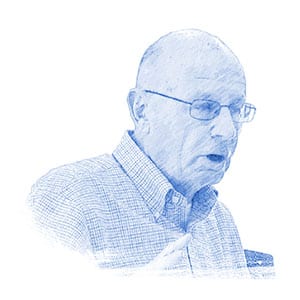You enjoy the complexities and nuances of policy debates?
Try working your way through Israel’s efforts to deal with the gas found under its section of the Mediterranean.
Several years after the discovery, we seem to be at a peak of dispute about sorting out who should control the stuff, what prices and taxes should be paid, who will profit by how much, when it will begin to flow, and how much should be sold to other countries.
There are enough details under each of those headings to provide a glory day for politicians with incentives to cry foul. Adding to their glee are claims that Sheldon Adelson waded in a year ago with a letter to the recipient of his favors, Prime Minister Netanyahu, expressing an opinion on how the issues should be resolved. John Kerry is said to own a million dollars worth of the shares in the energy company that is a major player in this game.
Don’t expect me to argue one or another side of the cacophony playing around numerous issues, as well as the claims and assertions by one or another party that a competitor is distributing disinformation.
It’s a classic example of why “justice” has no place in a discussion of public policy.
There are too many perspectives, details too complex, predictions too elusive to be certain about for any clear way to describe a deal as being good, bad, or–a favorite word for those admitting complexity–reasonable.
There is plenty in the media, in Hebrew and English, for anyone intense enough to wrap themselves in the allegations of what is in the deal, and who stands to profit by how much.
The policy making process is the best defense of whatever is decided. No one single individual will have crafted it. The details have been argued over by professionals in the fields of economics, energy, and law as well as by elected politicians of various parties with the formal responsibility for deciding.
Participants have argued their objections and reasons for supporting the deal in the media, and at least one individual holding high office (the regulator of monopolies) has resigned in protest.
It’s not yet a done deal.
At a Cabinet meeting meant to settle an important step, the Minister with the authority to sign key documents decided that a Cabinet decision was not enough to protect his already shaky reputation, i.e., Minister of the Economy Ariyeh Deri, a graduate of Israeli Prisons due to missteps in a previous position. So now it looks like the entire Government will be debating the details, and perhaps the entire Knesset. And at each step there’ll be commentators explaining and attacking what’s on offer.
It’s simple to oppose the deal, claiming that the price Israelis will pay for gas will be too high, that the principal investors will be making too much money, and that Prime MInister Netanyahu and his colleagues have caved in to the capitalists..
Complicating efforts to bring down the price and the profits are contracts already signed, and the insecure place of Israel in the international energy markets. Investors claim that they are due considerable profit for their investments in drilling for gas that might not have been found. Some commentators are arguing that Israel should not risk its problematic position in the world by trying the clip the profits expected by one of the few exploration companies willing to drill for Israel.
Barack Obama’s Affordable Care Act is an American parallel to Israel’s brouhaha about gas. Its complexity reflects what politicians poured into more than two thousand pages. At its heart is an intensity of political competition over government provision of anything in a country founded on the principle of individualism and little if any taxes. The Constitution of 1789 corrected the absolute paralysis of government produced by the Articles of Confederation, but it was only Obama’s bill of 2010 that brought the country into line with other democracies in providing broad based health care to nearly all of the population.
Underlying problems continue to be federalism and the rights of states in the hands of opposition politicians to do what they can to frustrate national policy, and entrenched corporations who are doing what they can to profit from what other democracies provide as a public service.
It’ll take a few more decisions of the Supreme Court to assure that Americans have something close to what the citizens of most other well-to-do countries enjoy. Meanwhile, the air is filled with the sound of those claiming that Obama’s program has made things worse, and represents a fundamental challenge to what America should be.
The noise coming from American rightists is no less than that from Israeli leftists claiming that what is shaping up to be a complex set of rules about the economics of natural gas is a sell out to big capital and friends of the present government.
Just as Israel’s policy with respect to gas is too complex for a fair and simple assessment, that’s also the case in the convoluted elements of the Affordable Care Act and accompanying administrative rules. It’s still a work in progress, and it’ll take a while to see if the country ranked among the top 10 of the world in per capita wealth can improve its standing from #34 in longevity and #34 in infant mortality.
The same week that a key provision of Affordable Care got a 6-3 pass from the Supreme Court, the nationwide right of single sex marriage squeaked by the same Court 5-4.
One Republican presidential contender said, “This flawed, failed decision is an out-of-control act of unconstitutional judicial tyranny.”. Another said the “unelected judges redefined the foundational unit of society.”
Someone should remind those aspirants to the top office that it’s been the prerogative of the Supreme Court to define what is constitutional since 1803.
Polling suggests that Republicans hoping to get the White House should work against both of those candidates for their party nomination.
Single-sex marriage is relatively simple, without the many provisions having to be settled about Israeli gas or American health care. However, it is not free of all complications. Still waiting resolution are likely cases of religious colleges or hospitals that receive government money, and act against the hiring of staff or the acceptance of students involved in single-sex marriages.
Each of the issues considered here are unusual in representing major departures from existing policy. Israel’s gas debate reflects the first major discoveries of energy resources in what had been a country entirely dependent on imports. The Affordable Care Act was the first enactment after several failed efforts at legislating something approaching universal health care. The Supreme Court’s decision about single-sex marriages came after years of debate, and sharply different decisions in various states. Each comes against the background of contrasting opinions at high levels of intensity.
Saying that politics is the essence of civilization does not assure clarity in discussions about public policy, or wide acceptance about what the established institutions decide.
For less civilized alternatives in the realm of policy making, take another look at the Middle East outside of Israel.
Reprinted with author’s permission from The Jerusalem Post




